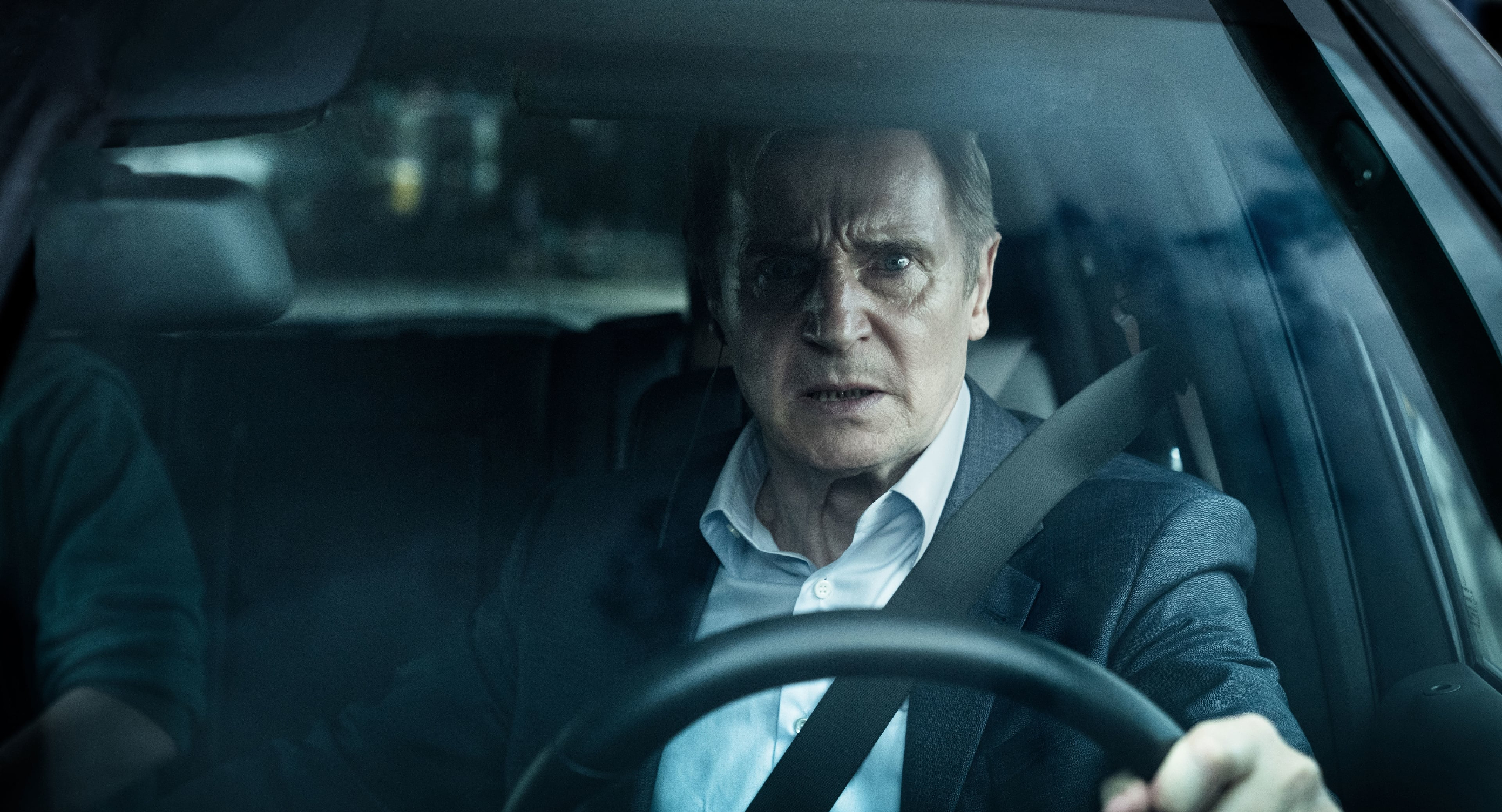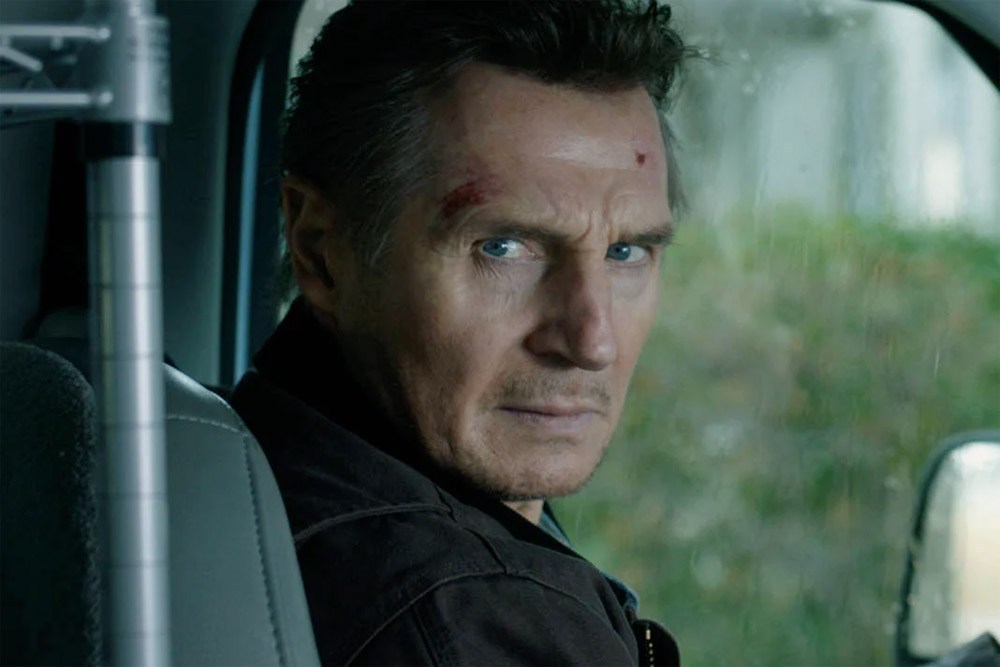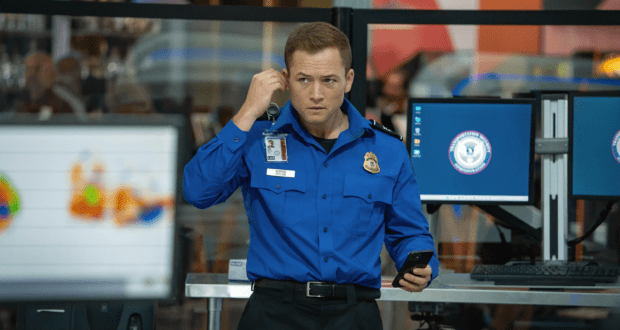Director Nimród Antal’s Retribution attempts to capitalize on the tension of a high-stakes thriller, featuring Liam Neeson in the lead role as Matt Turner. The film promises a heart-pounding premise: a man forced into a perilous situation by a mysterious caller, where he must follow a series of dangerous tasks to save his family from a ticking bomb. While the concept holds potential, the execution leaves much to be desired, resulting in a film that struggles to maintain its suspense and engage the audience. Read on for my non-spoiler Retribution review.
The Good Of The Retribution Review:
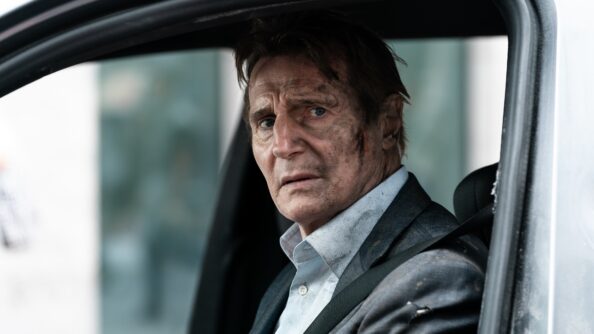
Liam Neeson delivers a committed performance as Matt Turner, an ordinary man thrown into an extraordinary situation. Neeson’s gravitas lends credibility to the character’s desperate plight, and his emotional portrayal effectively conveys the love and fear he feels for his family. Noma Dumezweni as Angela Brickmann brings a level of empathy to her role, offering a strong counterbalance to the chaos ensuing in the car. Unfortunately, the rest of the cast, including the child actors, seem to struggle with their roles, often delivering lines that come across as forced and unrealistic, diminishing the overall believability of the situation.
The film’s premise of a man racing against the clock to complete a series of tasks to save his family is undeniably gripping. The initial setup, with a bomb placed under Matt’s car seat and his children trapped in the backseat, sets the stage for an intense and nerve-wracking experience. As the story progresses, Matt’s escalating predicaments and the creative challenges he faces do create sporadic moments of tension. The screenplay introduces a sense of unpredictability, leaving the audience curious about the caller’s motives and how Matt will overcome each obstacle.
The Bad Within This Retribution Review:
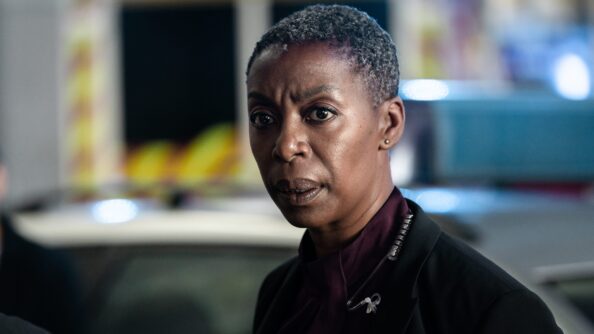
Where Retribution falters is in maintaining the suspense throughout its runtime. The pacing suffers from inconsistency, with moments of high-octane action abruptly transitioning into slower, dialogue-heavy scenes. These slower segments do little to enhance character development or build a deeper connection with the audience. Instead, they disrupt the flow of the film and dampen the urgency of Matt’s life-or-death situation. The lack of a coherent rhythm hinders the film’s ability to sustain the tension that is crucial for this type of thriller.
Director Nimród Antal attempts to infuse the film with stylistic flair, utilizing a mix of tight close-ups, rapid editing, and dynamic camera angles to heighten the sense of chaos. While these techniques succeed in certain scenes, their overuse leads to the point of becoming distracting. The constant barrage of visual tricks can lead to viewer fatigue, ultimately diluting their impact. A more restrained approach to cinematography could have allowed the suspenseful moments to breathe and generate a stronger emotional response.
The central premise, while engaging, raises questions about plausibility and logic. The caller’s ability to orchestrate such an elaborate series of tasks with pinpoint precision strains credibility. As the challenges become increasingly dangerous and elaborate, the audience is left wondering about the feasibility of their execution. While some suspension of disbelief is expected in this genre, Retribution stretches the boundaries to the point where it becomes a barrier to full immersion in the story.
Retribution presents an intriguing concept with the potential for nail-biting suspense
The film’s depiction of family dynamics and the lengths to which a father would go to protect his children is a theme that resonates. However, the limited character development and emotional depth of the supporting characters prevent the audience from fully investing in their journey. The children, portrayed by Lilly Aspell and Jack Champion, are reduced to mere plot devices, lacking the depth needed to make their perilous situation truly heart-wrenching. This deficiency in emotional connection undermines the film’s attempt to strike an emotional chord.
In terms of technical aspects, the sound design and music play a pivotal role in building tension within a thriller. Unfortunately, Retribution falls short in this department as well. The score often feels generic, relying on familiar suspense cues that fail to elevate the intensity of the scenes. Sound effects, particularly during action sequences, lack the impact needed to immerse the audience in the chaos. These shortcomings contribute to the film’s struggles in generating a consistently gripping atmosphere.
Overall Impressions:
Retribution presents an intriguing concept with the potential for nail-biting suspense. Liam Neeson’s dedicated performance and sporadic moments of tension provide glimmers of promise. However, the film’s inconsistent pacing, overreliance on visual gimmicks, and lack of emotional depth ultimately undermine its effectiveness as a thriller. The underdeveloped characters and questionable plot elements detract from the realism required to fully engage the audience in Matt Turner’s race against time. While Retribution aspires to be a gripping high-stakes thriller, it falls short of delivering a truly immersive and satisfying cinematic experience.
Retribution Review: A Heart-Pounding Race Against Time That Falls Short
-
Acting - 7/10
7/10
-
Cinematography/Visual Effects - 6/10
6/10
-
Plot/Screenplay - 6/10
6/10
-
Setting/Theme - 5/10
5/10
-
Watchability - 6/10
6/10
-
Rewatchability - 4/10
4/10
